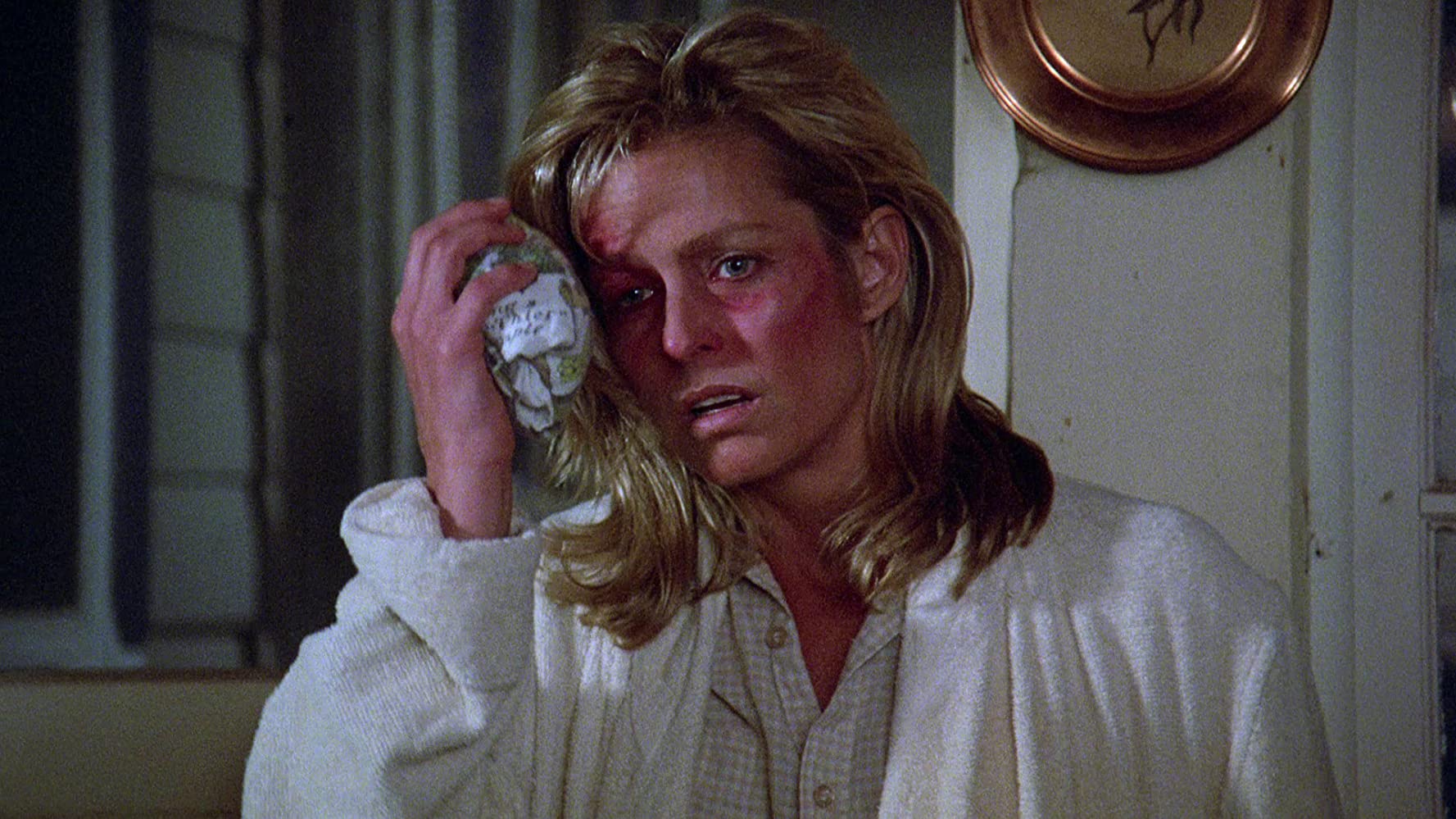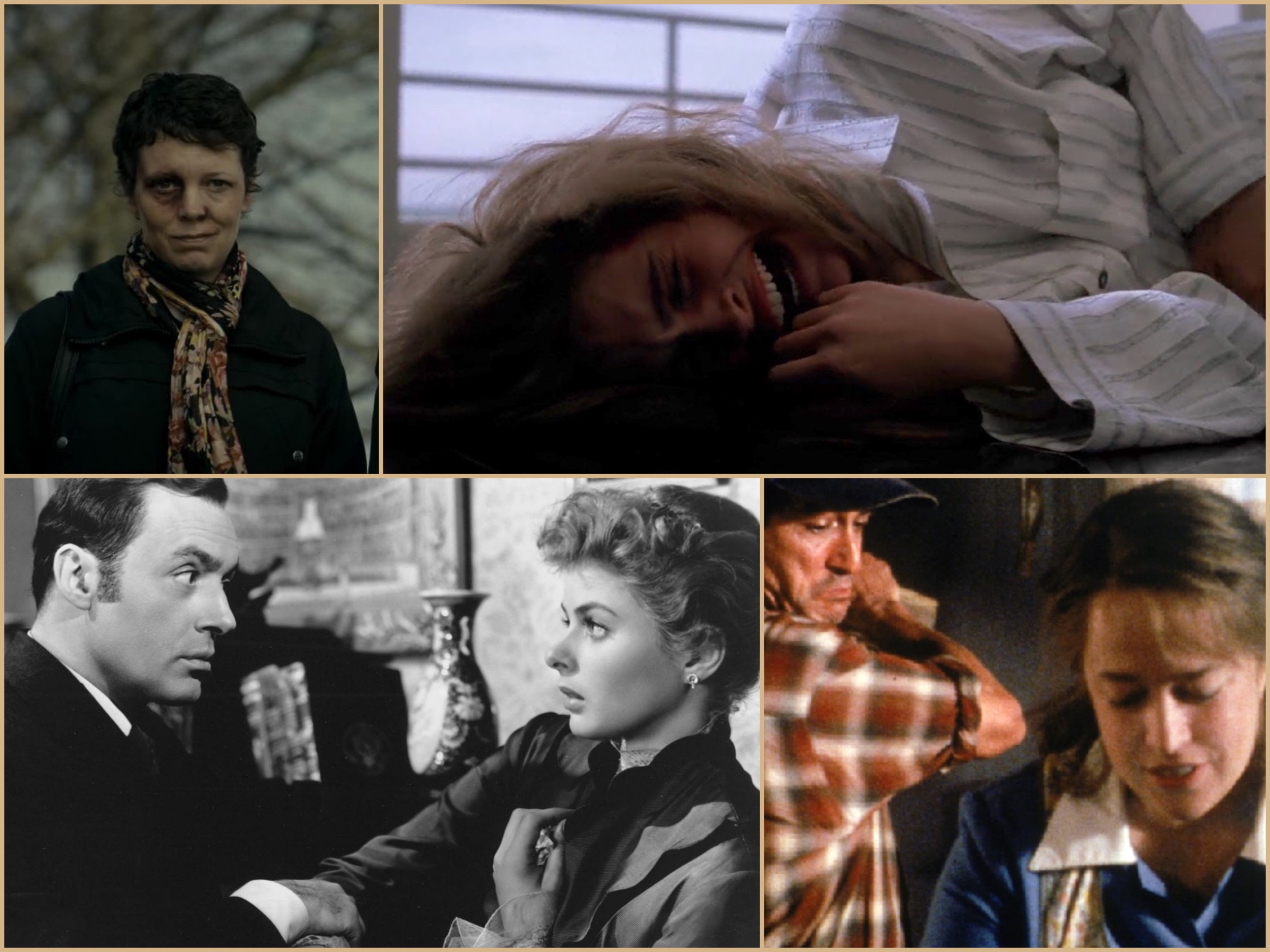
- Industry
A Woman’s Worth: Films About Domestic Violence
The Burning Bed, What’s Love Got to Do with It?, Sleeping with the Enemy, Dolores Claiborne, Not Without My Daughter, Bastard Out of Carolina. And the upcoming Let Him Go starring Diane Lane and Kevin Costner. What all these films – and many more – have in common is the theme of domestic violence. And as the world sees this crime on the rise in COVID times, the subject matter could not be more relevant.
The Burning Bed which came out as a non-fiction book written by Faith McNulty in 1980, about Francine Hughes, a battered housewife who set her marriage bed on fire, was adapted into a full-length TV movie four years later. Directed by Robert Greenwood, it starred Farrah Fawcett in one of the best roles of her career for which she received a Golden Globe nomination. At the premiere she said: “It’s impossible to let go of a role like this. You do bring that home with you every night. I was only able to shake her off three or four weeks after filming.”
Julia Roberts echoed that sentiment after she shot Sleeping with the Enemy, in which she is on the run from her controlling and destructive marriage.
Golden Globe winner Olivia Colman played the victim to Eddie Marsan’s brutal husband in Paddy Considine’s hard-to-watch film Tyrannosaur (2011). And Jennifer Lopez has put herself through the emotional ringer of acting in roles like these more than once. In Enough, based on Anna Quindlen’s novel “Black and Blue”, she takes matters in her own hands. And in Lasse Hallström’s An Unfinished Life she escapes domestic violence and it ends better for her with the help of her father-in-law played by Robert Redford. Dolores Claiborne with Kathy Bates and Jennifer Jason Leigh, and based on a Stephen King novel, delves deeper into the subject matter by showing the long-lasting effects abuse by parents and partners can cause. Even films like Fried Green Tomatoes, Sling Blade and Thelma & Louise have underlying themes of domestic violence. In the latter, Ridley Scott parades every conceivable disgusting male behavior on screen as a setup for the two main characters’ plot development.

Clockwise from top left: Olivia Colman in TyrannosaurSleeping with the EnemyDolores ClaibornGaslight.
Film4/20th Century Fox/castle rock/columbia pictures/mgm
In one way or another, Hollywood has always dealt with the subject matter, even in times when it was inconceivable for any man to get arrested much less convicted for beating or raping his wife. The 1944 classic Gaslight may not show physical violence but the psychological abuse the scheming criminal husband played by Charles Boyer inflicts on his wife (Ingrid Bergman) is just about as bad if not worse than if it were physical (the term ‘gaslighting’ comes from this film). In The Cow, Ken Loach’s directorial debut, the story of 18-year old Joy whose husband mistreats her, does not have a happy Hollywood ending but an unfortunately realistic one, where she returns to him in the hopes that it will not end badly. Which, of course, it does.
All these films are well worth re-watching. But none more so than the 1993 What’s Love Got to Do with It? that won Angela Bassett a Golden Globe for her portrayal of Tina Turner. The film is based on the Turner biography “I, Tina” by journalist, producer and MTV host Kurt Loder. Why does this story stand out? Because Tina Turner is widely credited for being the first black woman to openly speak out about the years of violence she endured at the hands of her then-husband Ike Turner, played by Laurence Fishburne in the film. Even though abuse had been hinted on in other films about African American performers (as was the case in Dorothy Dandridge’s life story as well as in Lady Sings the Blues about the troubled life of Billie Holiday), no one had been as open as Turner before, who also went into gruesome detail about the sexual and physical abuse she suffered – from being burnt to suffering a broken nose and countless black eyes, in her 2018 memoir, cynically titled “Love Story”.
“Our life together was defined by abuse and fear,” Turner writes of her ex-husband Ike. “I had no money and didn’t know how to take the first step. I convinced myself that death was my only way out.” With the help of Buddhism and sheer survival instinct, Turner escaped and became a bigger star than she (or he) had ever been. She also found long-lasting love with her German boyfriend, record executive Erwin Bach.
Sadly, even today, many women can tragically relate to these stories and films, whether they are fictional or based on true events. And not everyone’s fate turns out to end in success with the man in jail, dead or living in disgrace while the woman rises to the height of success as Tina Turner has certainly done.

